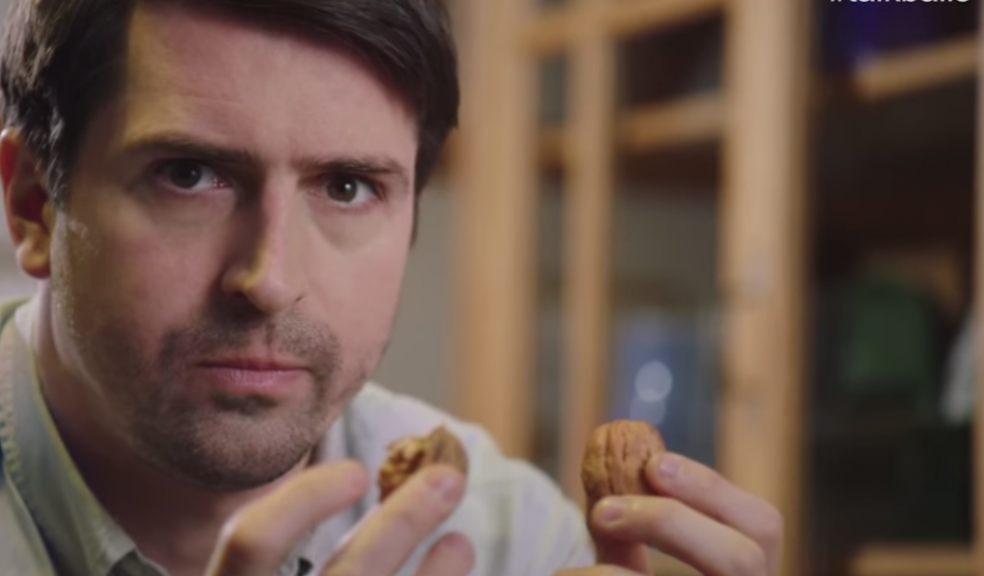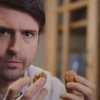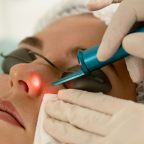
SW parents uncomfortable talking about testicular cancer. Funny new video tackles taboo...
A new survey, commissioned by male cancer charity Orchid, reveals that 48% of parents in the South West do not regularly talk to their children about health issues or concerns. Furthermore, almost 20% of parents never broach the issue with their children.
The survey highlights a lack of confidence amongst South Western parents when bringing up health issues with their children.
Stats reveal that a worrying 23% of parents in South West of parents do not feel confident discussing how to check for signs and symptoms of serious and sensitive conditions like testicular cancer with their children, despite this being the most common cancer to affect young males. Furthermore, over three quarters of parents would refer their child to a GP to seek advice on their health rather than speaking to them directly.
Orchid Chief Executive Rebecca Porta comments “Awareness of testicular cancer has significantly improved over the past few years, but these concerning findings illustrate that many parents in the South West still don’t feel equipped to discuss the topic with their sons. Talking to your child about the signs and symptoms of serious health issues is extremely vital, especially when it comes to testicular cancer. If caught early, the disease can be 98% curable.”
“Whilst it is reassuring that Britain’s parents are quick to encourage their children to seek health advice from a GP, talking to your son openly about the signs and symptoms of testicular cancer could be crucial in leading to early detection of a lump or an abnormality.”
“Orchid is calling on parents in the South West region to take a few minutes to educate themselves about testicular cancer, learn how to carry out simple self checks and recognise the early warning signs and symptoms, to enable them to pass on potentially life-saving information to their children.
In line with these findings Orchid have launched a new viral campaign with the support of Hunger Games star Alexander Ludwig. The video is a humorous take on a serious message; showing a father making numerous attempts to bring up the awkward subject of testicular cancer with his sons. The video cleverly demonstrates that there shouldn’t be any awkwardness because the sons are more than willing to ‘talk balls’ with their Dad.
Over 2,200 young men aged 15-44 are diagnosed with testicular cancer each year. Orchid’s awareness campaign hopes to encourage parents to feel confident talking to their sons about testicular cancer, and ensure they know how to check for signs and symptoms.
Alexander Ludwig, who is supporting the campaign says, “I know it’s not a comfortable subject to talk about, but we need to talk about it because testicular cancer affects thousands of men and their families each year.”
“Help Orchid spread awareness by sharing this video using the hashtag #talkballs”
Please click here to see the video. Please share on social media with the hashtag #talkballs
How to check yourself for Testicular Cancer
The Testicular Self Examination (TSE) process itself takes only a few minutes and should be done on a monthly basis.
The best time to perform TSE is during or after a warm bath or shower when the scrotal sac is warm and relaxed.
1. Check each testicle separately using one or two hands.
2. Roll each testicle between the thumb and forefinger checking that the entire surface is free of lumps
3. Become familiar with the feel of the epididymis collecting tube, which runs behind the testicle. This is normal and is often mistaken for new growth. Lumps in the epididymis are more common and almost invariably benign .
4. Men should be encouraged to see their doctor immediately if they find any new lump
A lump isn’t always noticeable so look out for anything that feels unusual such as a dragging sensation, pain or other discomfort. Always get it checked out. Less common symptoms may be breast swelling, tenderness or unexplained back pain due to the possible spread of cancer to lymph nodes.




















